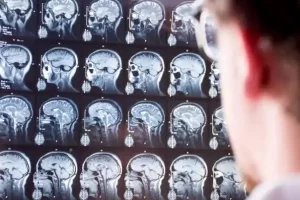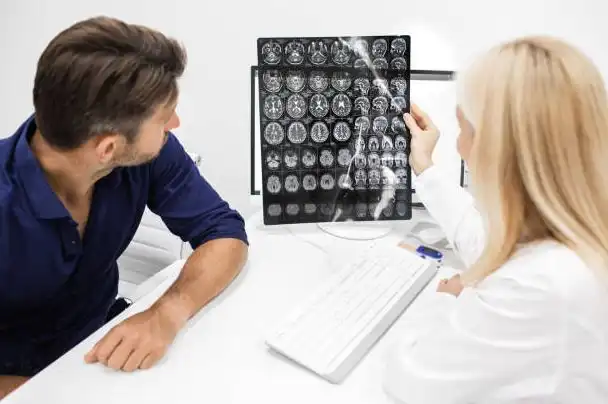Consult a Neurologist After Stroke
A stroke, also called a brain attack, occurs when the blood flow fails to reach a particular part of your brain. When there is a lack of oxygen in the blood, the brain cells refuse to cooperate and they die.

High blood pressure, diabetes, tobacco use, being overweight, and heart disease are just a few of the factors that put people at risk. In turn, these medical conditions can expose you to other medical conditions like a heart attack.
This article explains how brain attacks affect the body and whether you should consult a neurologist who specializes in the brain and nerves after an attack.
How Does Stroke Affect the Body?
The effects of stroke on your body fall into the category of minor or critical. There are two main types:
- Ischemic. The condition occurs when the vessels in your brain that carry blood become clogged. Fat deposits in the arteries break off and enter the blood vessels, causing a blood clot.
- Hemorrhagic. In contrast to ischemic conditions, it is not expected. It usually occurs when a blood vessel in the brain bursts or leaks from a weak vessel. It is primarily caused by uncontrolled high blood pressure and the use of blood thinners.
Whether the brain attack is minor or severe, the following changes in the body will be observed:
- Respiratory System. The medical condition may harm the part of the brain that controls eating and swallowing, causing food to end up in places it shouldn’t be, such as the lungs. Infections and pneumonia can result as a result of this. If the part of the brain that controls heartbeats and temperature does not function properly, death or coma may occur.
- Nervous System. The spinal cord, nerves that run throughout the body, and the brain make up the nervous system. Following a stroke, your body may become more sensitive or less sensitive than usual. The brain no longer understands these changes as well as it once did.If the part of the brain that controls vision is damaged, your vision is likely to change. You may lose some or all of your sight. You might see something, but your mind doesn’t process it properly, resulting in hallucinations.
- When nerves are damaged, you may experience partial paralysis, which causes you to drag your toes while walking or force you to bend your knee to lift your feet to keep them from dragging. The good news is that rehabilitation can help you overcome your foot drop problem.
- When the brain’s left part is damaged as a result of stroke, it causes problems with speaking, understanding language, remembering, reasoning ability, analytical thinking, and the ability to be organized. Damage to the front of the brain front causes changes in intelligence, thinking patterns, movement, personality traits, and logic.
- Circulatory System. The medical issue is most likely caused by pre-existing circulatory issues that gradually worsen. The complications are associated with high cholesterol, diabetes, smoking, and high blood pressure.
A brain attack increases the chance of having a heart attack.
How Many People Are Affected By Stroke In The U.S?
According to a study conducted by the American Stroke Association brain attacks affect only a small percentage of people over 75. For the past 30 years, the number of adults aged 49 and under who have had brain attacks has been rising, particularly in the South and Midwest of the United States.
According to the research, approximately 795,000 new and recurring brain attacks affect US residents each year. This threat has increased the economic and health burden, particularly on the active population that is most needed for performance.
High blood pressure and type 2 diabetes are to blame for the brain attacks afflicting these young and middle-aged people. People are also more likely to live for a long time after a brain attack.
Is Seeing a Neurologist Necessary After a Cerebrovascular Accident?

Doing a follow-up with your neurologist Fort Lauderdale after a brain attack strikes is essential. The medical condition doesn’t just appear and disappear. Having a specialist who can guide your recovery journey should be on your priority list.
Neurologists are experts in treating conditions involving the brain, muscles, nerves, and spinal cord. Apart from brain attacks, these specialists can deal with various other neurological disorders.
Contact Dr. Jeff Steinberg For More Information
By visiting the brain attack specialist, they get to know when the medical condition started, the cause, what you can do to minimize the effects of the disease, and what to do to avoid the recurrence of the condition. Ensure that the doctor you see is well-versed in the field and highly recommended by those who have benefited from their services.

